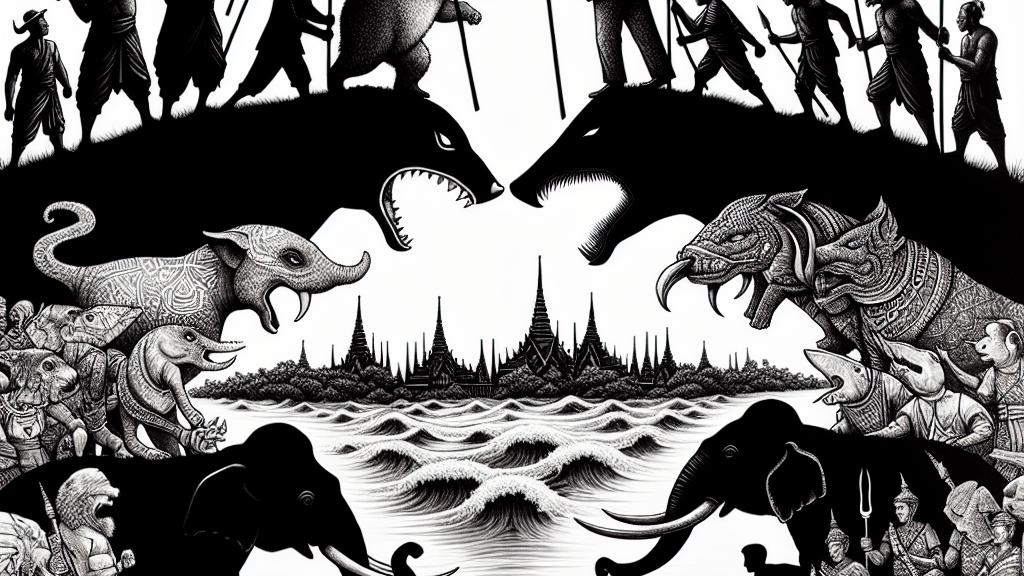Political Showdown: Democrats and Pheu Thai in Turbulent Alliance!
Overview
- Intensifying conflict between Thailand's Pheu Thai Party and the Democrat Party.
- Paetongtarn Shinawatra rises in history as Thailand's youngest and second female Prime Minister.
- Longstanding historical grievances shape political maneuvering and alliances.

Conflict Between Pheu Thai and Democrat Party
Thailand is currently witnessing a significant political showdown as the ruling Pheu Thai Party engages in a tense rivalry with the Democrat Party. This conflict escalated when Prime Minister Paetongtarn Shinawatra openly expressed her reluctance to forgive and forget the past actions of the Democrats, particularly their role in the violent dispersal of protests led by the United Front for Democracy against Dictatorship (UDD) in 2014. Her remarks have reignited debates over the party's history and highlighted deep divisions that have shaped contemporary politics. In a spirited response, Ramate Rattanachaweng from the Democrat Party questioned the integrity of her claims, challenging her to consider the historical accountability of previous Democrat leaders, suggesting that some members may have faced actual justice while others may have escaped unscathed.
Paetongtarn's Election: Significance and Challenges
In the midst of these tensions, Paetongtarn Shinawatra's election as Thailand's new prime minister represents a pivotal moment in the nation’s political evolution. At just 37, she becomes not only the youngest leader in Thai history but also the second female prime minister following her aunt, Yingluck Shinawatra. This significant achievement follows her father's controversial tenure and return from exile, thus making her leadership a focal point for the continuation of the Shinawatra political dynasty. Her election was facilitated amidst intense negotiations that reflect changes in Thailand’s power dynamics, as her party seeks a stable coalition with past adversaries. Nevertheless, she must navigate the skepticism surrounding her legitimacy—particularly the concern that she may act as a proxy for her father, raising questions about how independent her governance may truly be.
Navigating Historical Grievances for Future Stability
The alliance between Pheu Thai and the Democrat Party is fraught with the weight of historical grievances that could jeopardize their cooperation. Many former Democrat officials are wary of the potential repercussions of an alliance with a party that has faced immense resistance. This political skepticism must be handled delicately by Paetongtarn, who must unite her party while ensuring the Democrats feel heard and valued in this partnership. The challenges ahead are significant; she must work to strengthen her coalition, improve public trust, and prioritize effective governance. As Thailand navigates this uncertain political landscape, Paetongtarn’s leadership will be instrumental in demonstrating that progress is possible by addressing past divides and uniting disparate factions for the betterment of the country’s future.

Loading...